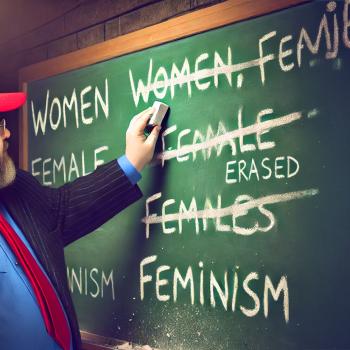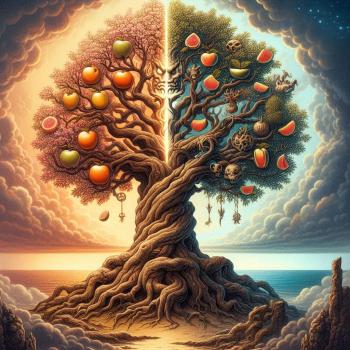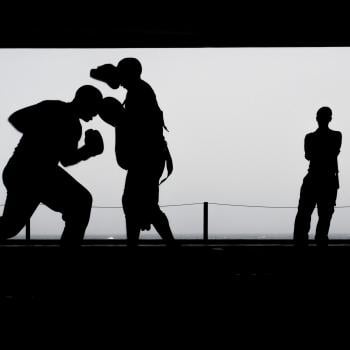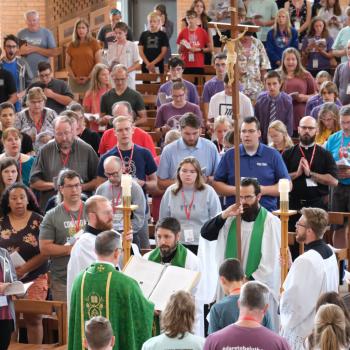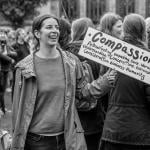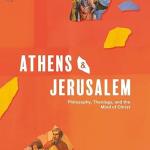We keep hearing about our need for “community”–how we’ve lost it, how we need it, how churches can provide it–but we don’t hear much about what that entails.
Our pastor recently mentioned in a sermon what the Scottish-American Catholic ethicist Alasdair MacIntyre had to say on the subject in his book After Virtue. According to MacIntyre, every community needs three things: a creed, a story, and a practice.
The sermon related this to our congregation and its 79th anniversary this year. But the notion that a community must have a common creed, a common story, and a common practice is a template for understanding all kinds of communities. These three necessities can show us how a sense of community functions, how it can be lost, and how it can be built.
I’d like to apply this to the three Estates, the spheres of human life and relationships that, according to Luther, God has ordained for our good and in which He calls us to our multiple vocations. Each estate is a social order, in which individuals come together with other people, making it a kind of community. The three estates are the church, the family, and the state.
The Church
The Holy Christian Church is definitely a community, “the communion of saints.” By virtue of our baptism and our faith in Christ, we belong to a community that includes and transcends all of the other communities that we belong to. “For in one Spirit we were all baptized into one body—Jews or Greeks, slaves or free—and all were made to drink of one Spirit” (1 Corinthians 12:13). As a result, “Once you were not a people, but now you are God’s people; once you had not received mercy, but now you have received mercy” (1 Peter 2:10).
All Christians definitely have a creed: The Creeds, the Bible
All Christians have a story: We are part of the history that begins with the Bible, proceeds into the Early Church, develops from that into today.
All Christians have a practice: Worship, prayer, hymns, the Christian life
The different Christian traditions constitute a community of their own. For Lutherans, complementary to the Ecumenical Creeds and the Bible, we have the confessions in the Book of Concord. Our story includes the Reformation and its aftermath, including for the LCMS, persecution from the Prussian Union state church and the Saxon immigration to the United States in search of religious freedom, the Seminex schism, and the like. Our practice would includes our liturgy, our observance of the church year, confirmation, and so on.
Catholics, Anglicans, Presbyterians, Baptists, Pentecostals, even Non-denominational Evangelicals have similar beliefs, stories, and practices of their own.
Congregations constitute a specific community that its members are part of, with their creeds (that of their tradition, plus perhaps additional informal beliefs that characterize that particular group of people), stories (how they were founded, their various pastors, the challenges they endured), and practices (worship styles, church dinners, various observances and customs).
The Family
Having community within a family–that is, a sense of belonging; a sense of togetherness–is important.
A common creed? Well, it helps if everyone shares the same faith and go to the same church. But there are other less formal common beliefs, such as allegiance to the same sports teams.
A common story? Each family has a shared history that persists in memories and common references–when the parents met, when the children were born, when they moved, the family vacations–and also family lore that goes back through the generations and across into the extended family.
Common practices? Each family has its customs: what to have for Thanksgiving dinner; when to open Christmas presents; the daily and yearly routine.
The State
This Estate includes the nation of our citizenship and also the localities where we live. We could, more broadly, apply it to our society as a whole, the culture that we belong to.
The United States of America definitely has a creed: The Declaration of Independence, the Constitution, the Bill of Rights.
The USA has a story: Our history, with all its ups and downs–our national heroes, the Revolution, the Civil War, the pioneers, the wild west, the Great Depression, the World Wars, the Civil Rights Movement, the Kennedy Assassination, Viet Nam, the Moon landing, and on and on.
The USA has its distinct practices: an individualistic streak; the Pledge of Allegiance; the Second Amendment; the American Dream; Fourth of July fireworks; etc., etc.
The various states, cities, small towns, and rural regions have their own creeds, beliefs, and practices. Though these have become less defined, as people move in and out and have less to do with each other. As a result, the sense of community is lessened.
In fact, the sense of community has lessened in all of the estates. Our nation is polarized, its citizens at each other’s throats. Families are often torn apart, with everyone going their separate ways. Churches are shrinking.
As we lose these communities, we struggle with our identity and our need to relate to other people. New forms of community are devised, which don’t really take the place of what used to be found in the Estates.
Tomorrow, we’ll use MacIntyre’s template to consider what has gone wrong with our various communities today. And we’ll try to think through how we can bring them back.
HT: Rev. Tyler Arnold
Illustration by AngieCrooks77 via OpenClipArt, Public Domain, CC0 1.0





